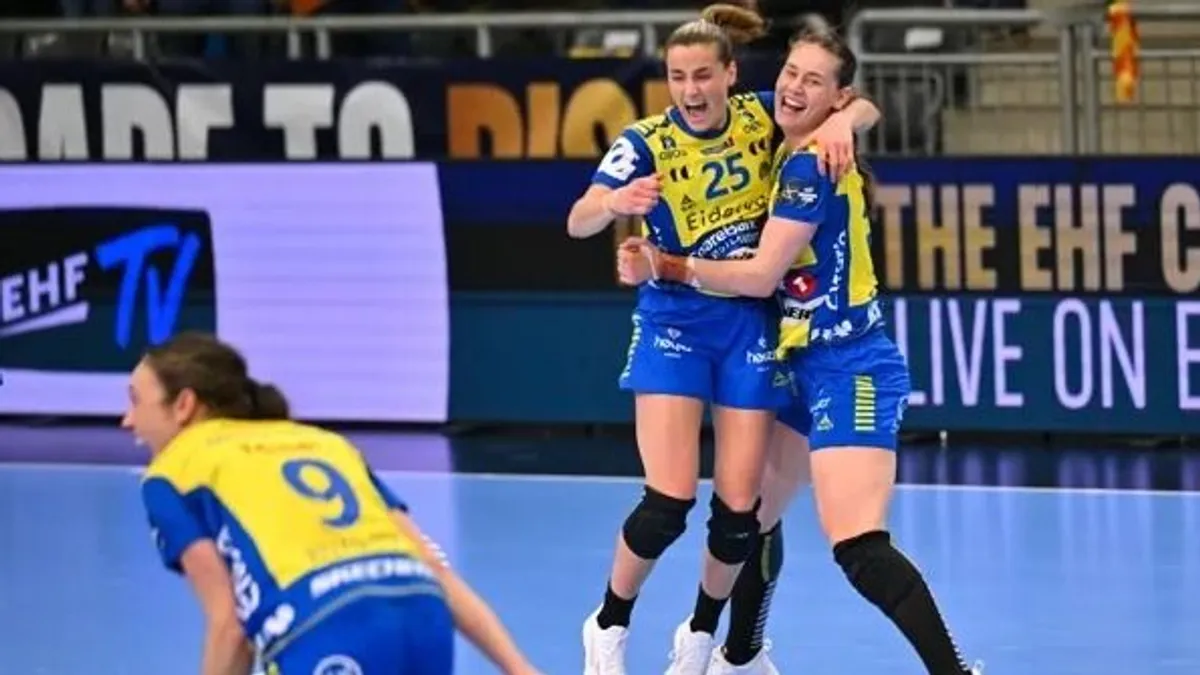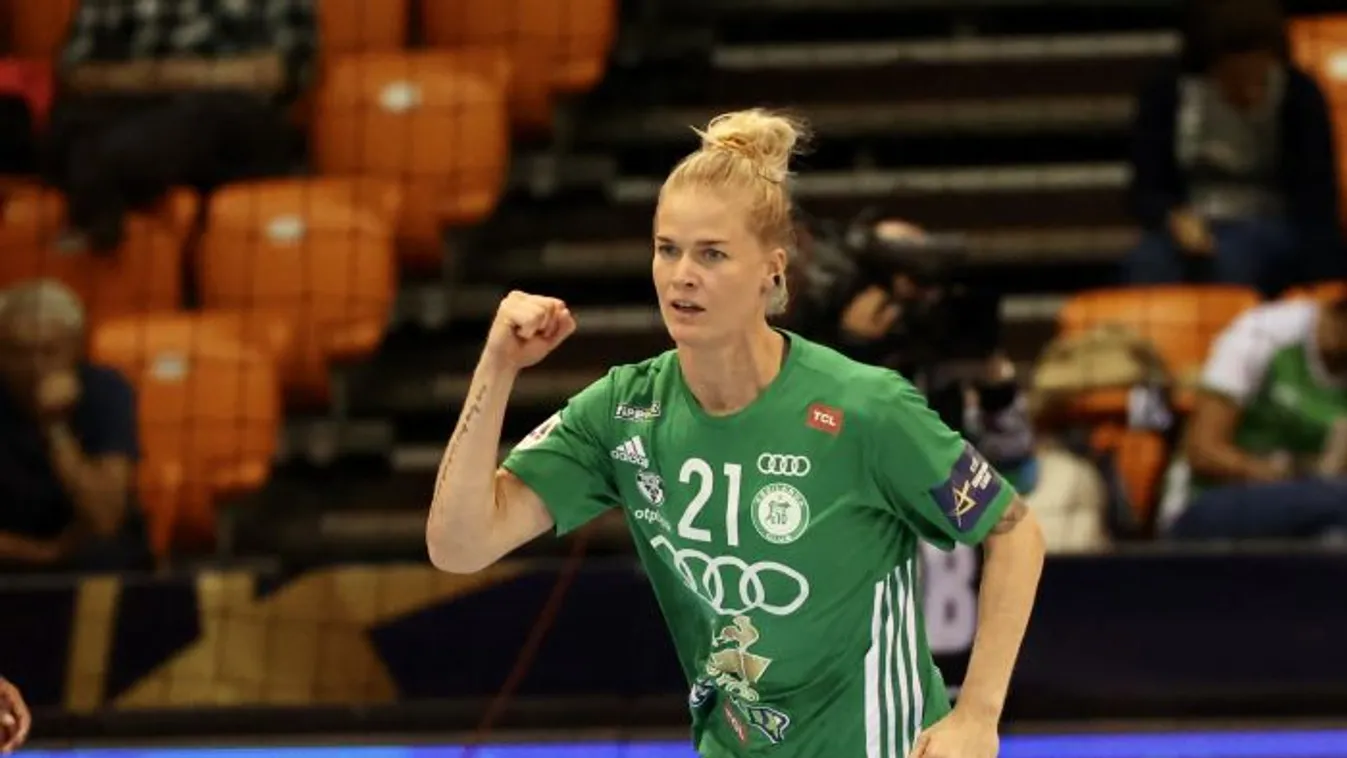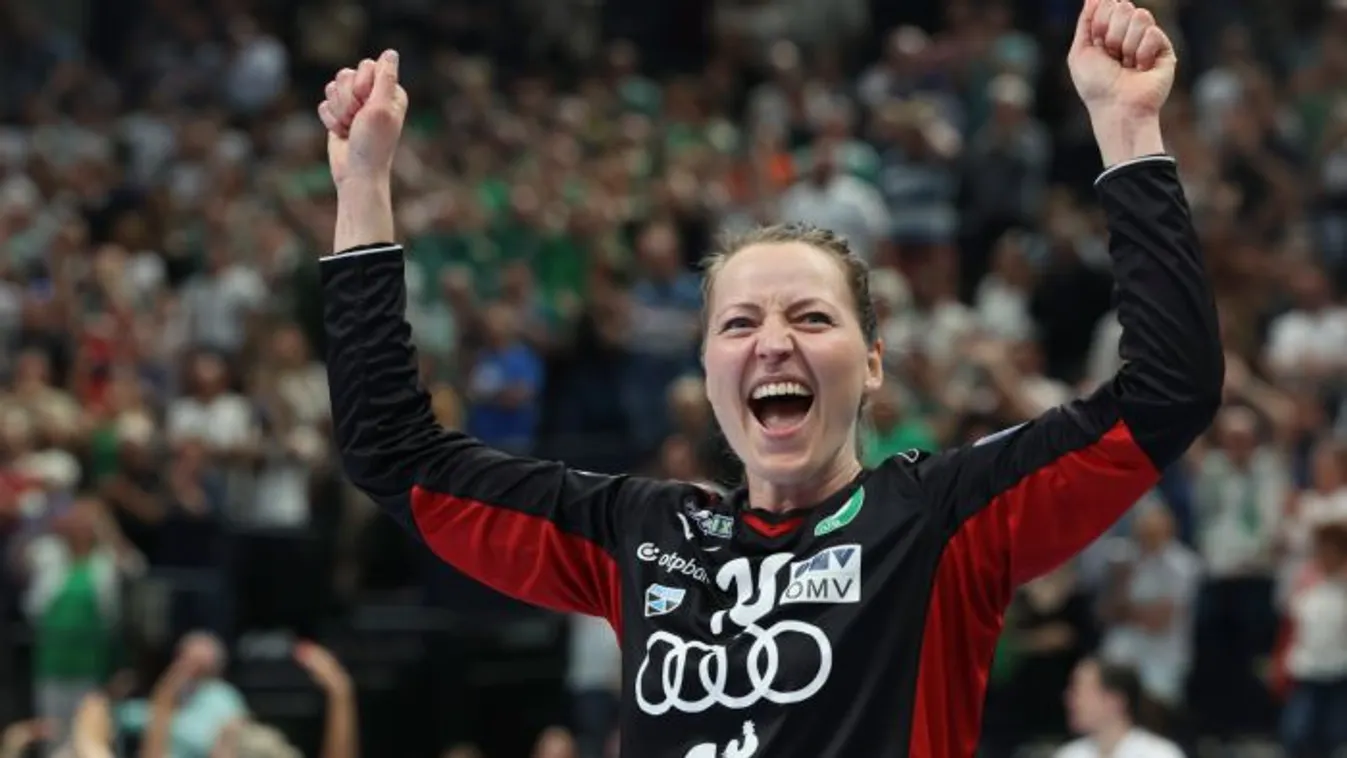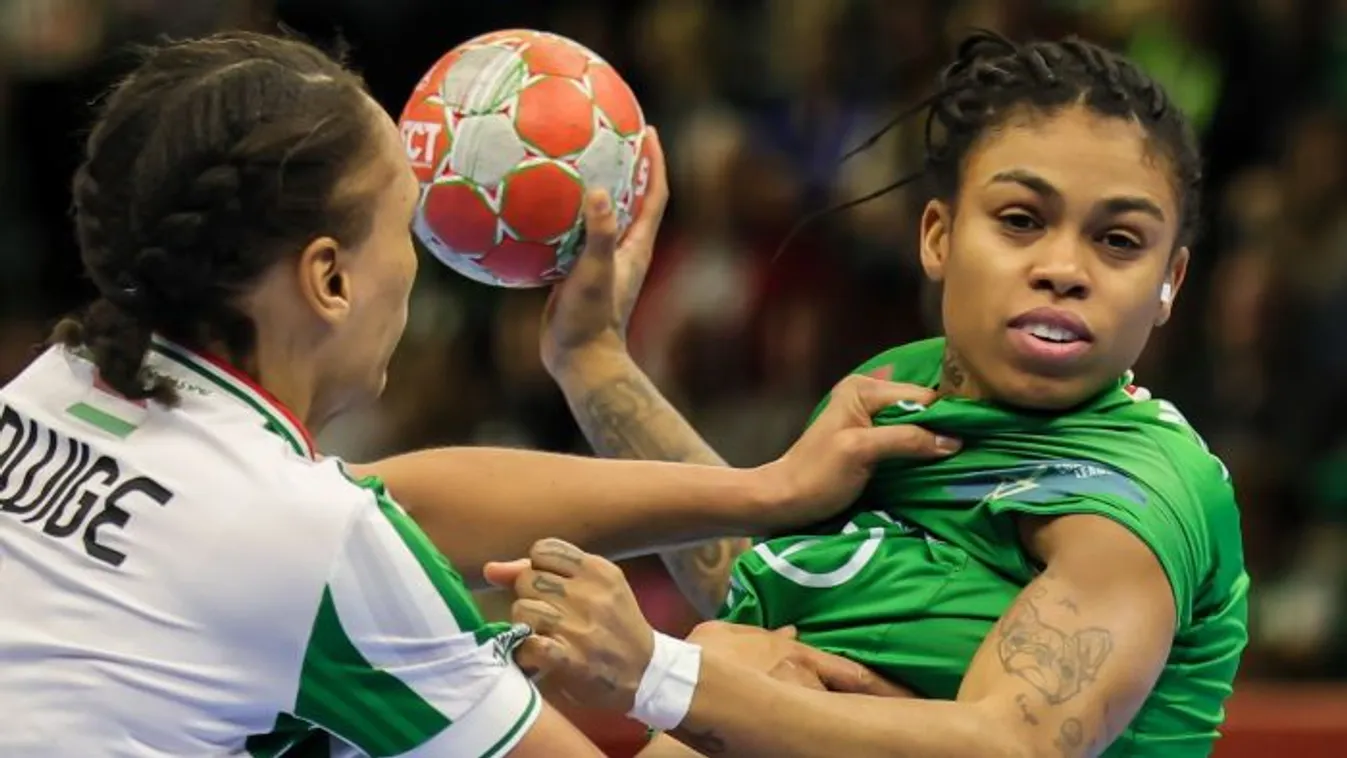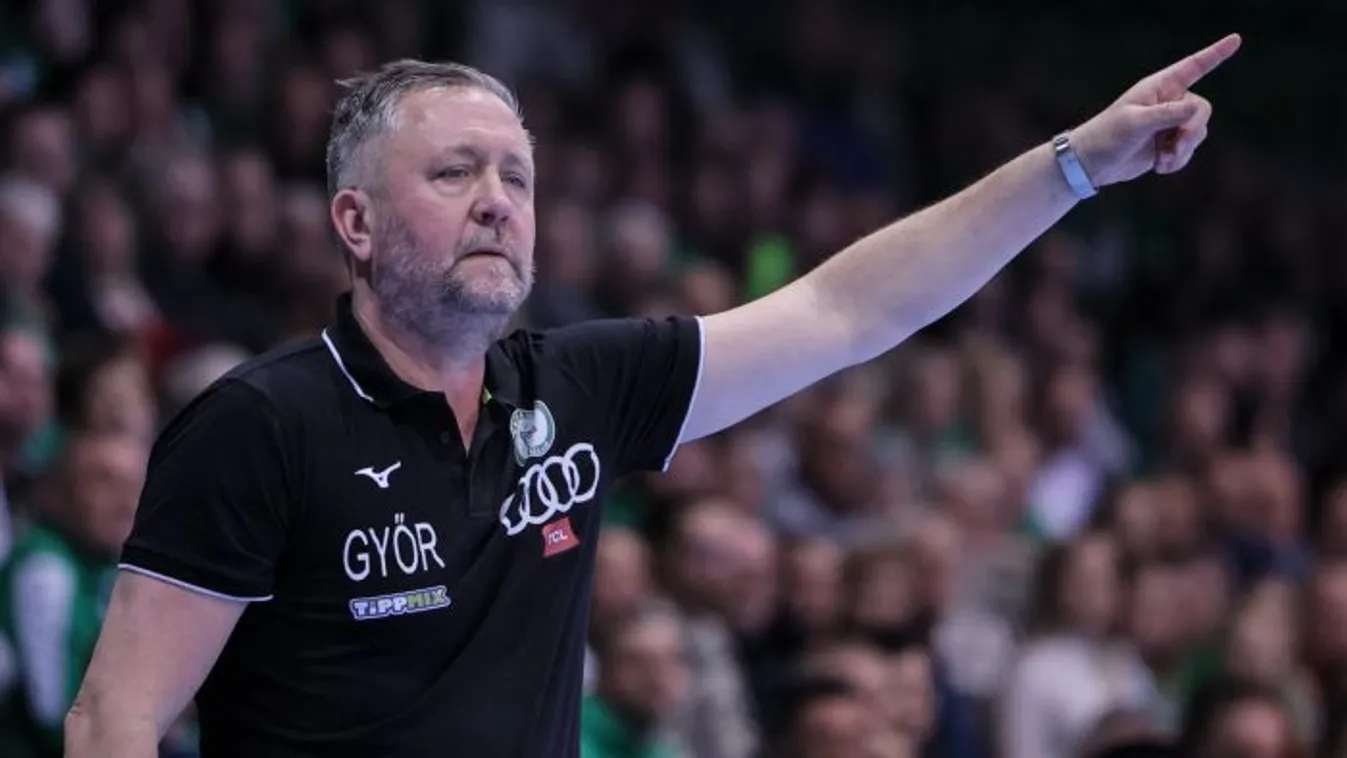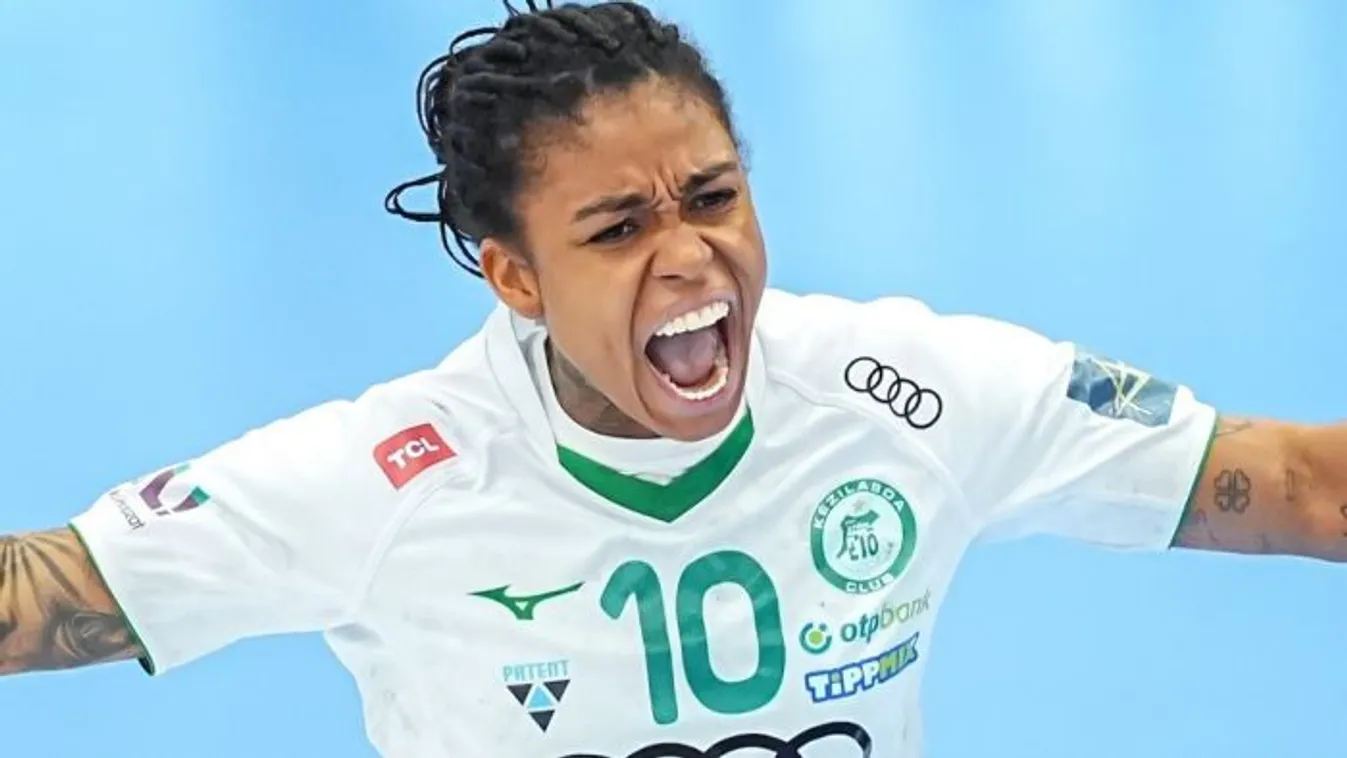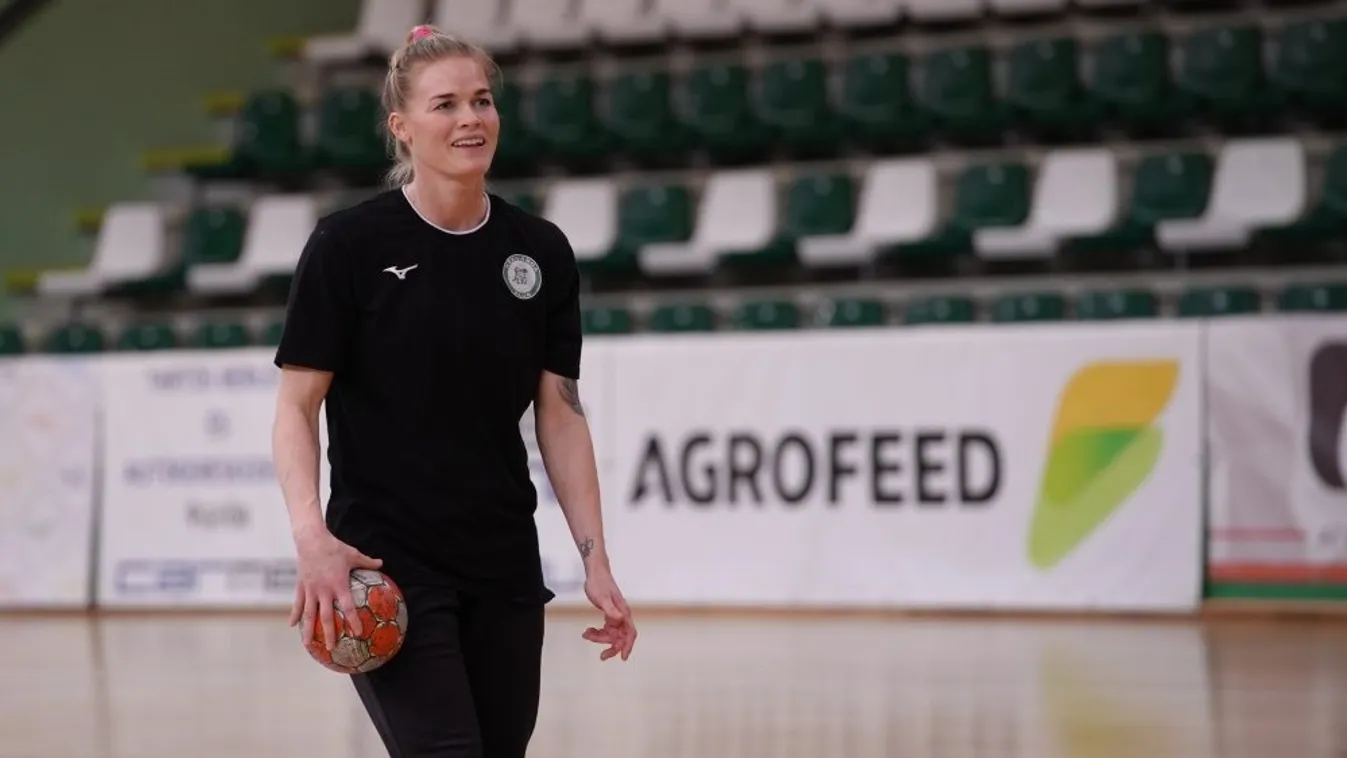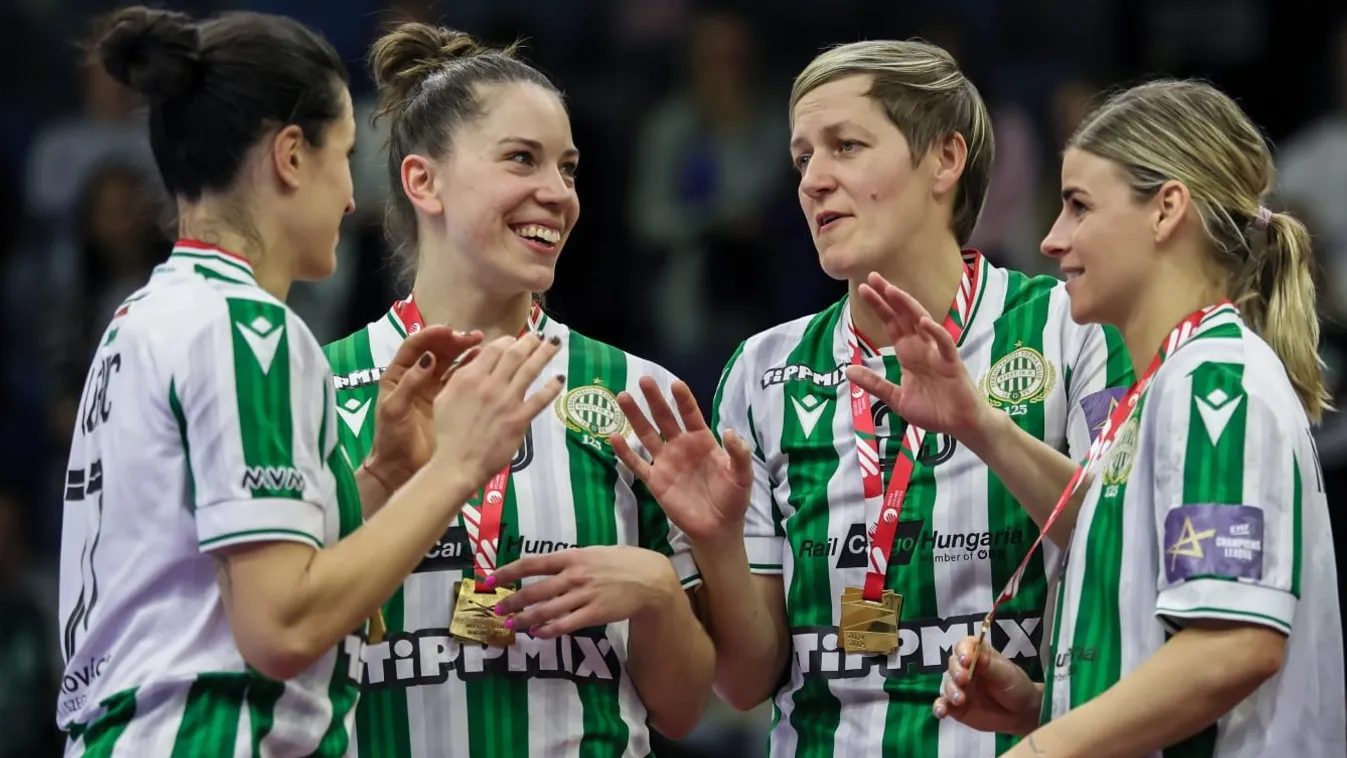Women's handball: Ambros Martín gave Raphaëlle Tervel a completely free hand
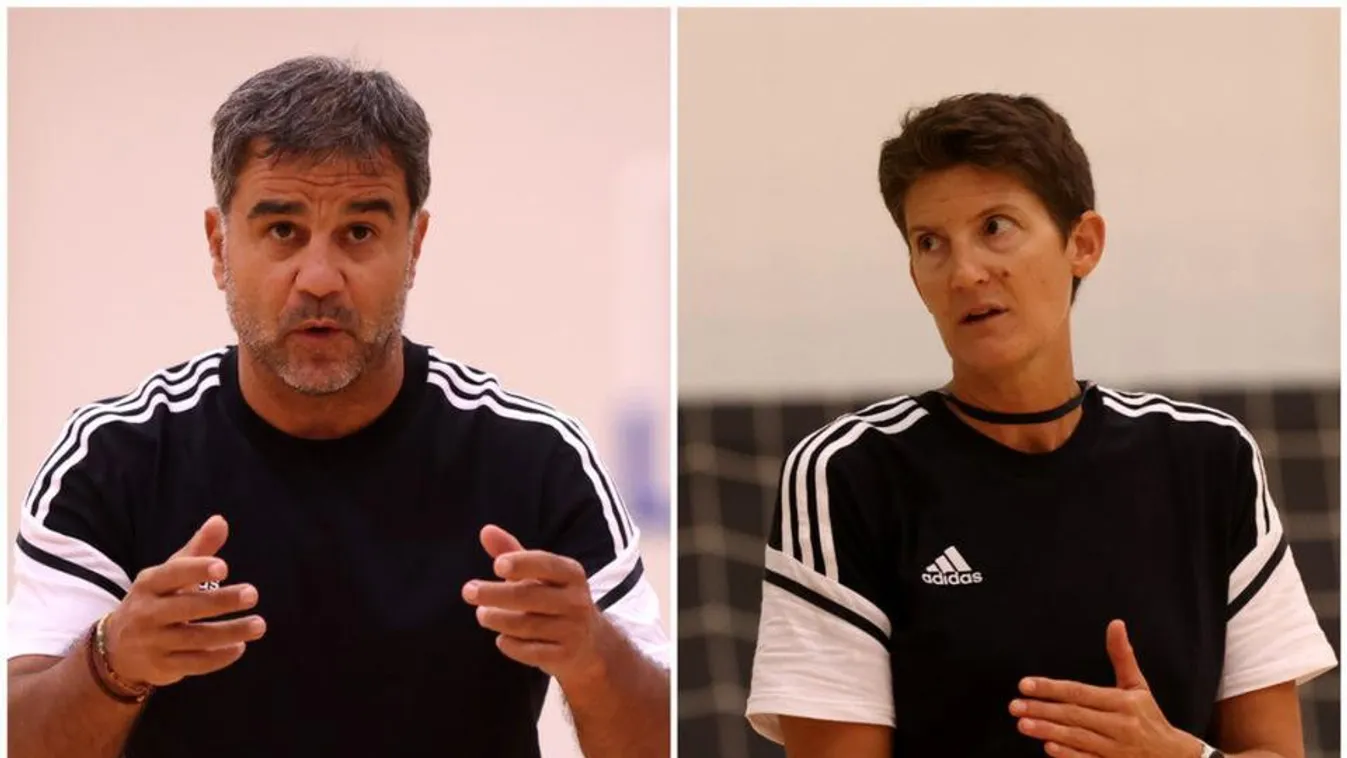
Raphaëlle Tervel was already an important player in Itxako, and you brought her to Győr. Was it clear that you would count on her work as a coach as soon as you had the chance?
Ambros Martín:She was the only player I wanted to sign for ETO. I had fought hard for her to come back then because I knew that her experience and attitude could bring a lot to the team in defense. She knows my way of thinking, and the Spanish system well and she also started her coaching career in France.
Raphaëlle Tervel: It was really thanks to Ambos that I was able to play in Győr at the end of my career. At first, the management didn't support my transfer, they were thinking of a goal scorer instead of a defender. But Ambros convinced the club that if the goal was to win the Champions League, the way to do so was through defense. He was the one again who called me back to ETO.
A. M.: This was the first time I asked the club for an assistant coach. This wasn't only to help me, but also to be an important part of the whole team. I specifically wanted her to join me. I had her in mind last year as well, but Attila Kun was already my assistant at the time, and I didn't want to change. Now the moment has come, Attila became the technical director of the academy this summer.
You had coached Besançon for six and a half years before leaving last summer. How did you spend the last period?
R. T.:I took a year off to recharge my batteries and clear my head. During that time, I didn't isolate myself from handball, but I had the chance to observe it from a different perspective. I've been on study trips to several countries, including Spain, Portugal, and Norway, and of course, I went to the World Championships in December and the final four in Budapest. I watched matches and training sessions and talked to colleagues, so it was a very useful and interesting time for me professionally.
Isn't it a step backwards that after all the seasons you have spent as head coach, you will now be assisting Ambros Martín in Győr?
R. T.: I see it more as a step up because I get to work for a team whose aim is to win the Champions League. My current job is very different from at Besançon. The French team is made up of young and inexperienced players, while ETO is the other extreme, full of players who are known and have already fought many big battles.
What do you need most help with from her?
A. M.: She came with extra motivation, which I'm sure the girls will find appealing. As a player, she was a real team player and leader, with a personality that could contribute a lot to everyday life. We realized last season that with the busy competitive schedule, we had less and less time for individual training - Raph will be able to help any player with that too. Although I've been working in the industry for many years, it's not secondary that a female coach has joined us.
R. T.: I always thought that if I was going to be an assistant coach somewhere, I could only imagine it with Ambros. But I didn't really have a hope because I knew he liked working on his own. He had assistants in the past, but he delegated few tasks to them. That's why I was surprised to get this call.
A. M.:It is indeed the first time that my assistant coach will have such a big role in the life of the team. I have given her a free hand, she can talk to the players at any time, and share her insights. She won't be there to pass the ball to them or because there is a need for more staff on the bench.
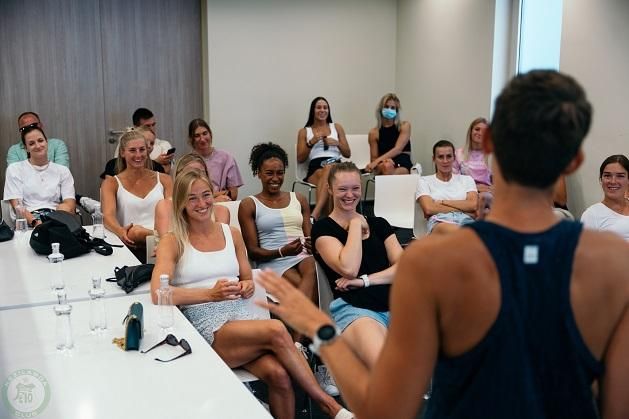
As if there were two head coaches.
A. M.: Exactly, we can't really talk about a head coach and an assistant coach as there will be two coaches. Of course, I have to make the final decisions, I have the responsibility, but before that, we will discuss them thoroughly with her and the captains.
R. T.: Ambros also stressed that I should behave like a head coach. If I have any insight, I can feel free to communicate it to the players. It's no surprise that defense is the most important element of the game for me, and that's where I'll try to help the team the most.
A. M.:It is important that the other coach gets the opportunity to help and give something to the team. I don't like it when everyone just nods. It's much better when they also come up with their ideas. That's what I expect from Raph, and I encourage her to feel free to share her insights and then we can put together the ideal solution for the team from both of our opinions.
Will there also be a link between Ambros and the players, to whom the girls can turn with anything?
R. T.:We'll see. For sure, it's important for me to be aware of how our players are feeling, and if they have a problem, they share them with me and together we can figure out how to help them. If they're emotionally stable, they'll make better decisions on the court in the tensest moments.
How would you define your coaching philosophy?
R. T.:I believe that the players should always be at the center of attention. At Besançon, the composition of the team was such that the professional staff always had to show the way, even though the leaders should be on the court. We worked a lot at the French club to get the players to take the lead and take responsibility. It is the coach's job to support his or her players, and not to put pressure on them.
Has anything changed since you worked together in Győr eight years ago?
R. T.: We've only been working together for a week, but I can see how Ambos is still calm, focused, and hungry for success. We'll probably have our first game of football together on Monday, and I hope we'll be playing against Ambros, because I want to win against him.
A. M.:She is just as fired up as she was as a player. Her physical condition would allow her to play even now, as there have been occasions in training when she has stepped in to help.
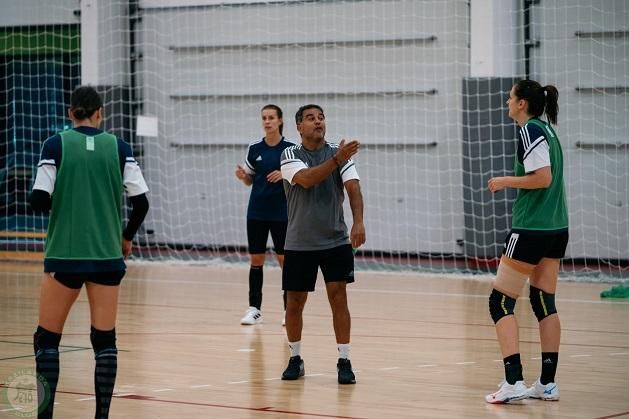
With Ana Gros, a goal scorer has joined the squad. How will her arrival change the team's game?
A. M.: Another item is added to our arsenal. A real goal scorer who can be dangerous from the far zone. We were not known for having only one key player, but the goals were spread out between several players. With Ana's arrival, we are not looking for her to be sprinkling in every game either, but there is no doubt that she can bring something to our game that has been missing in recent seasons, and that is the long-range shot. Opponents will have to attack her, and that will open up space for others.
R. T.: We'll certainly try to play to her strengths. We have a very complete squad with players of different characters, it will be interesting to manage and get the best out of it.
If you include Kari Brattset, who is in the family way, there are eight Scandinavian players in the squad. What do they do better than the others?
R. T.: When I played in Larvik for six months, I already experienced the cultural differences. It's enough if I only mention the fitness training, for which they don't need a coach, they do the work themselves. They are still at the forefront of this.
A. M.:In the big tournaments, the Scandinavian teams, and the French - we'll leave the Russians out of it for now – always finish in the top half. It's their attitude to sports and competitions that sets them apart. There have been Scandinavians in Győr since I arrived, and now there will be eight. However, it is more important whether there is a harmony within the team and the players fit together. This works very well for us, even though we have several nationalities in the squad.
How is Line Haugsted's recovery going?
A. M.: It's going well, but she is still ahead of a very long rehabilitation. I think we can only count on her after the European Championships. It's unfortunate, and a shoulder injury is always critical for a handball player, so it's important for her career that we don't rush her return.
Sticking a bit more with the Scandinavians, how surprised were you that Vipers defended their Champions League title?
R. T.:What struck me most about this year's final was how the Vipers built up the game against Győr, how they waited for the moment. ETO dominated the early part of the match, but the Norwegians didn't despair, you could see how confident and well prepared they were. They applied their seven-against-six attack in the second half when they took the lead, and they held it until the end.
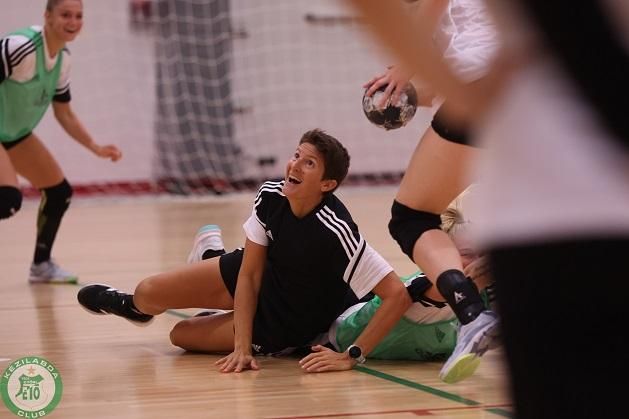
Noémi Háfra has been loaned to Denmark in the hope of more playing time. How do you see her situation?
A. M.: First of all, I would like to take this opportunity to say again that I am very disappointed that I didn't give her as much playing time as she deserved based on her training. At the end of the season, in the important games, I simply didn't have the courage to send her out but gave other players the chance. But she deserved to play more. I was keen to change that in the coming months. At first, we agreed that she would stay at least until the European Championships and if she wasn't happy with her situation, we would then think about a change. In the meantime, however, several Champions League clubs approached her where she was expected to play an important role, and she was the one who was most keen to be transferred abroad. Nowadays, there are few Hungarian players who would like to be foreign players. Odense and its coach were keen to have her on their team. They assured us that she would get the opportunity and support to learn. As a newcomer after the Olympics, she needed time to settle into the new environment, but by the end of the season, she was in excellent form. She was fantastic in training, she helped us a lot and it was only my fault that I didn't use her in the important games.
In what do young Hungarian players need to develop in order to become key members even in a Champions League team?
R. T.:First of all, I would like to highlight the physical part. I see the results of the various tests, and they could certainly improve with more work. So, they would be faster, and they would be able to sprint more in the matches. Hungary has very good results at the junior level, but afterwards, at the adult level, they cannot achieve the same. If you start training a lot at a very early age, you can get enough of it before you reach adulthood. This is just my first impression, but I think Hungarian players could be happier, too.
There have been other changes since the previous season. Laura Glauser switched clubs because she also wanted to play more. It seems that this will mean abandoning the three-goalkeeper line-up. Why?
A. M.:Three goalkeepers are no guarantee for a better performance, we saw in the Champions League final that none of ours did really well. Statistics are often more balanced with one goalkeeper of outstanding ability, even if it carries danger. In Glauser's case, I don't share her observation. It may have been true for her first season, but in the second, she got as many chances as her teammates. In the important games, Solberg or Leynaud have indeed been given more of a role, but that was not against her; the other two goalkeepers did a fantastic job. It was her decision to leave, we accepted it, although I would add that there will be three goalkeepers in Bucharest. We are looking for another young player who can help us in training and in some matches. The goalkeeper's and the defensive line's work is the basis of our system, and in this respect, Solberg and Toft have a different style, which we can get benefits from.
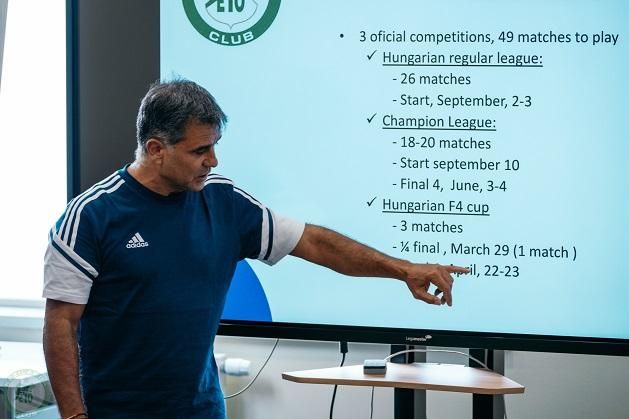
How do you see the new signings of domestic rival Ferencváros? Several experienced players have joined them, such as Zsuzsanna Tomori, Andrea Lekić and Dragana Cvijić.
R. T.: No matter what team they have, these matches are always special. Like when we played against Metz with Besançon. We play handball for matches like that.
A. M.:It is certain that with the players mentioned, Fradi can be stronger. We already had big battles against each other last season, it's easy to imagine that we'll have an even tougher job against them now.
What would you be satisfied with at the end of your first season as a coach in Győr?
R. T.:We can't have any other goal than to finish at the top in every series. I played for two years at ETO, and we collected six trophies during this time. We cannot underperform, and the club will provide all the conditions to help us. Other than that, I want to enjoy my job, the training sessions, and the time I spend with the team. I am grateful to have this opportunity. After a year off, I am more than motivated.
What are your more distant aspirations for your careers? In the case of Ambros, I read in an interview that he had originally planned to achieve similar success with a men's team after the Tokyo Olympics. However, after his departure from Russia, he did not want to leave the women's division with a bad taste in his mouth.
A. M.: This is really the next step in my career. But before that, I would like to win the Champions League with ETO again. We came very close last time, but our form dropped in the last month. Maybe the long season due to the Olympics played a part in it, or maybe we simply lost our rhythm. After February, we didn't play a Champions League game for two months, and we missed those matches. Of course, life is not a wish-granting factory, and other teams are also in the running for the final victory. If it happens, then my time in women's handball will be up. But it will happen in the best possible place... in Győr.
R. T.: I would like to be a national team head coach one day. To tell you the truth, after I finished at Besançon, I was looking for the opportunity to work for a national team. I didn't care which country had a vacancy, but of course, I was attracted to the stronger teams because I like to win. Olivier Krumbholz will probably be the head coach of France for a long time, but I'm open to accept invitations another country. Maybe one day it will happen.
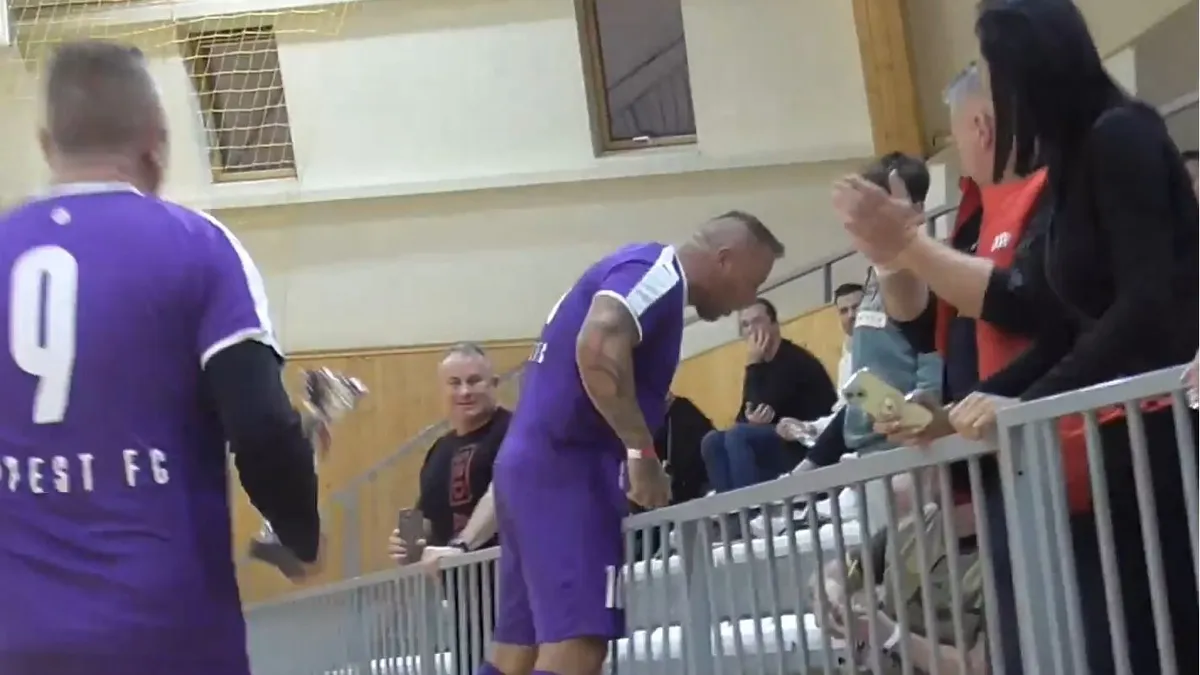
Curtis pofonvágta az őt gyalázó szurkolót a lelátón
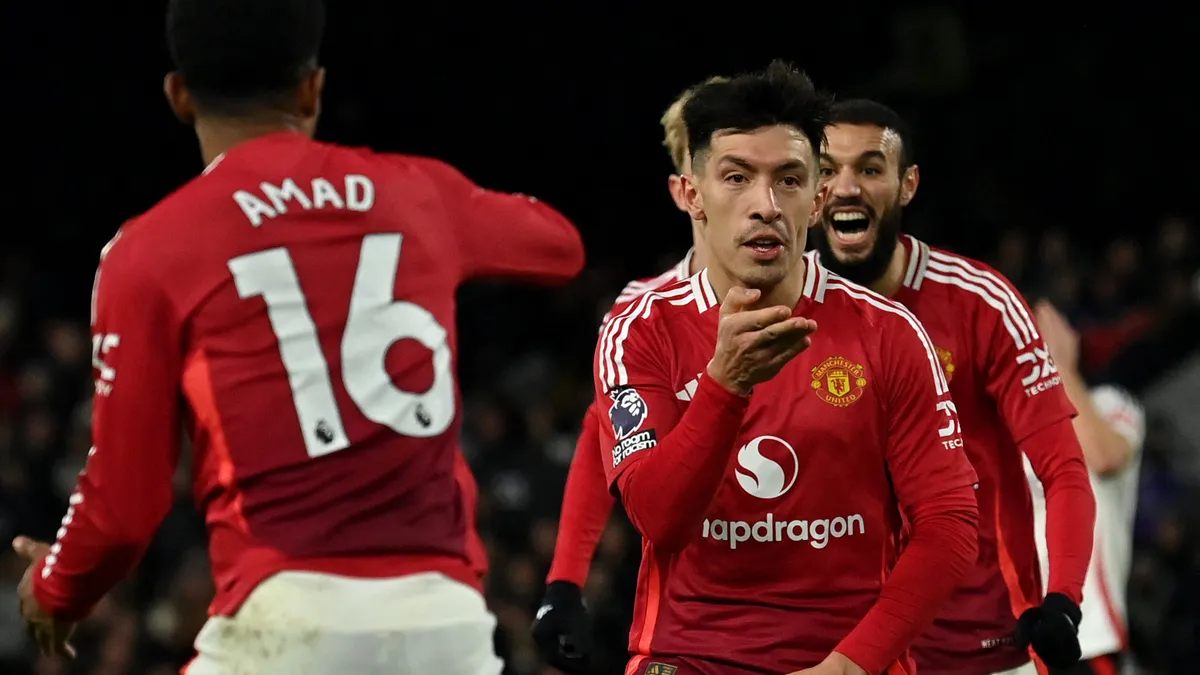
Az MU egyszer találta el a kaput, de egy szerencsés góllal így is nyert
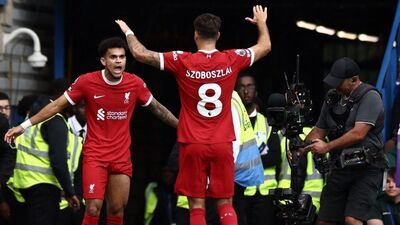
Ez nem hiányzott: Szoboszlai Dominik még egy világsztár miatt aggódhat!
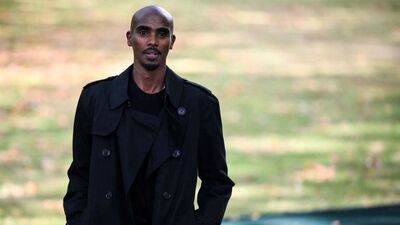
Milliárdokért árulja luxusotthonát az olimpiai bajnok

Villámgyors finomság – az 5 legjobb tejbegrízrecept
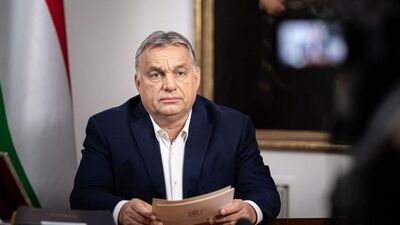
Orbán Viktor elutazik, ezen a helyen magyar kormányfő még nem járt
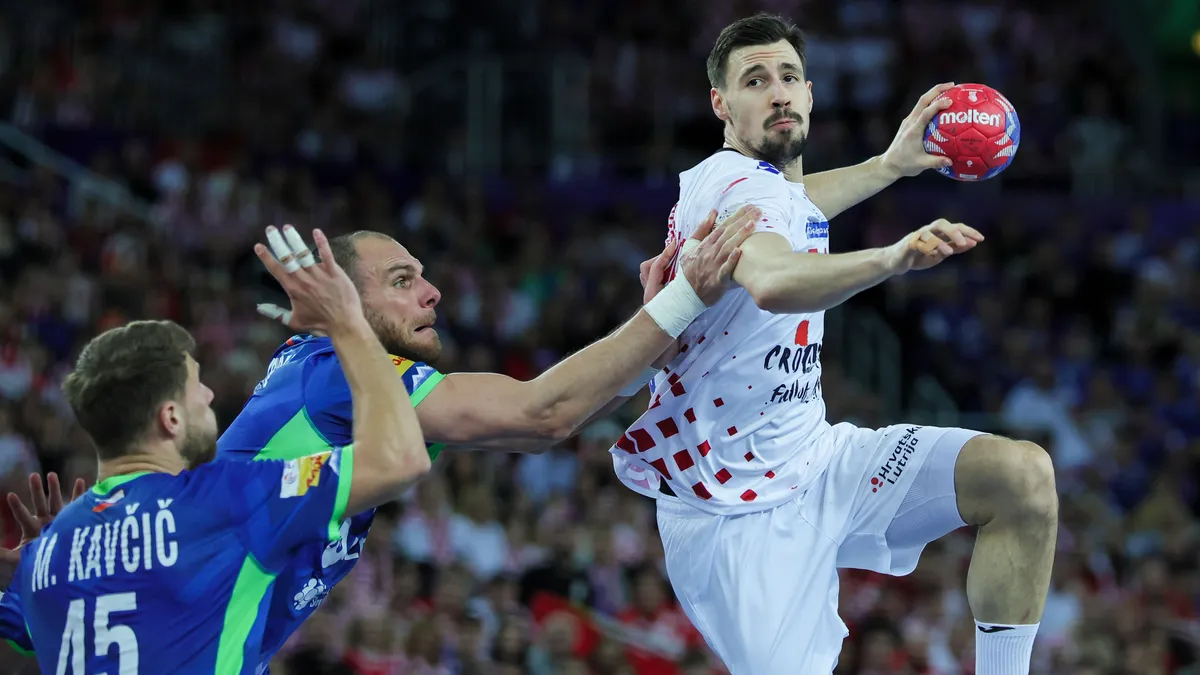
A szlovénokat legyőző Horvátország lesz a mieink negyeddöntős ellenfele kedden 18 órakor a kézi-vb-n
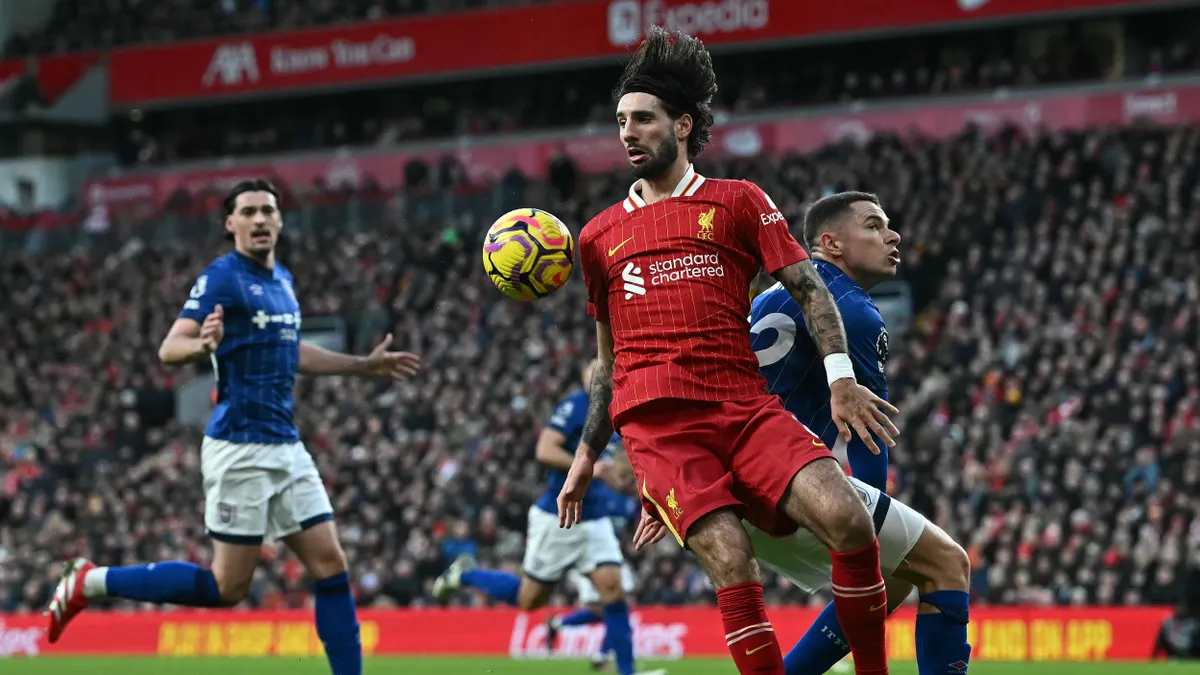
Szoboszlai szenzációs passzán ámul a világ - videó

A Chiefs újabb drámai meccsen nyert a Bills ellen – triplázás kapujában a Kansas City!
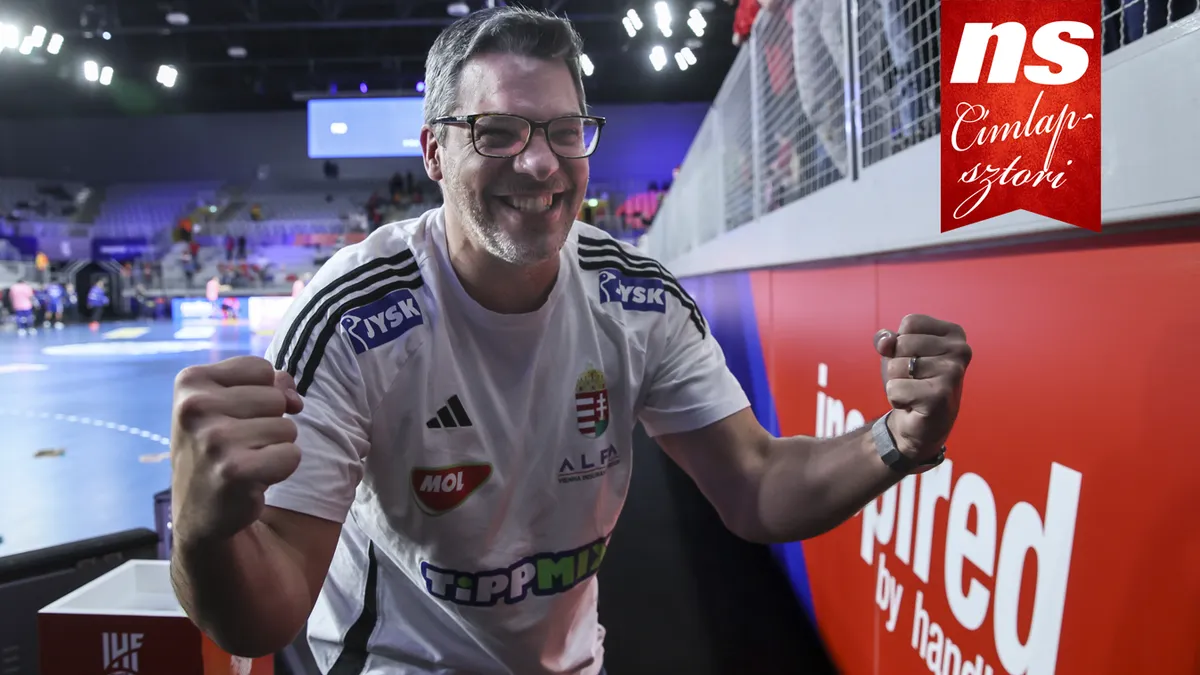
Chema Rodríguez: Óriási dolog, hogy sorozatban harmadszor ott vagyunk a nyolc között
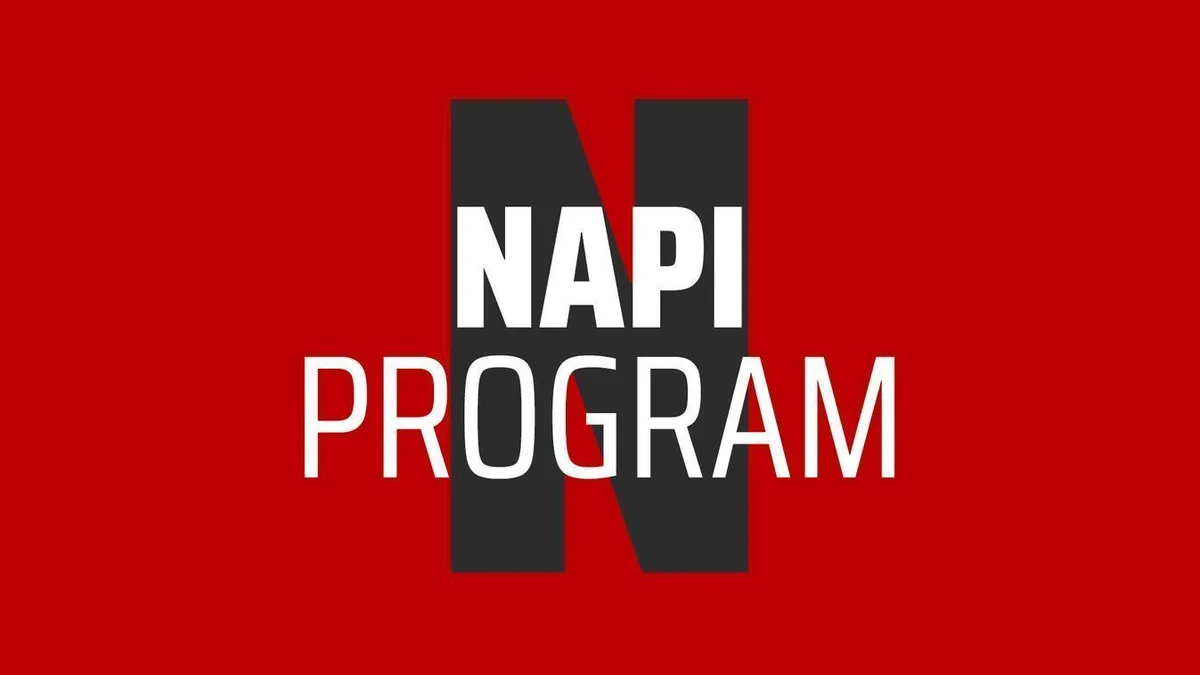
Hétfői sportműsor: olasz, spanyol és angol futball, magyar futsal
